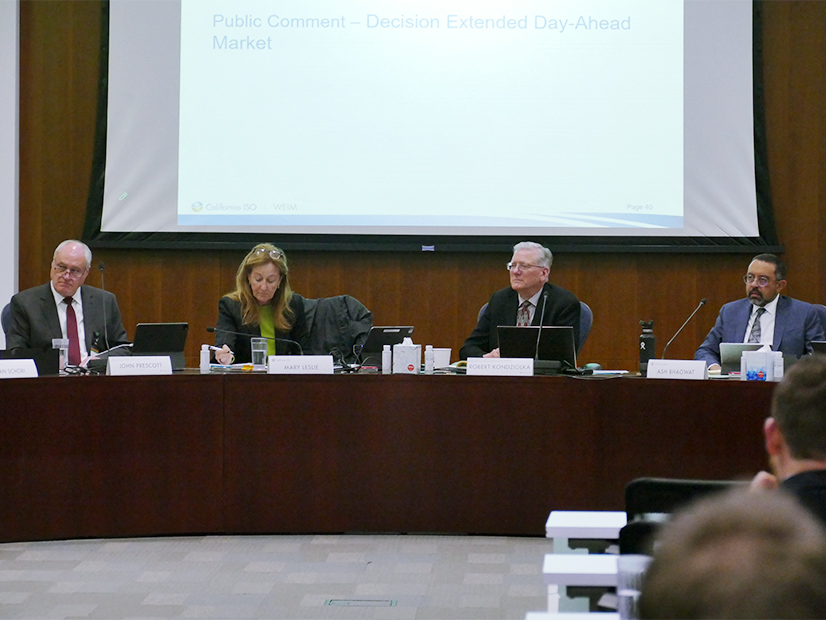The Virginia House Commerce and Energy Committee voted to tighten regulation of electric utility rates as disparate interests lined up behind two bills.
Representatives of Gov. Glenn Youngkin (R), Attorney General Jason Miyares (R), Dominion Energy (NYSE:D), consumer groups, and environmentalists supported a pair of bills that the committee voted out unanimously. Democrats on the committee, environmentalists and clean energy advocates, however, opposed a third bill that they argued would stymie the goals of Virginia’s Clean Economy Act.
HB 1604, sponsored by Del. R. Lee Ware (R) would give the State Corporation Commission authority to reduce an investor-owned utility’s rates if it determines they would produce unreasonable revenue in excess of the utility’s authorized rate of return. Current law requires the SCC to set utility rates based on a group of investor-owned peers in the Southeast.
HB 1670, sponsored by Del. Daniel W. Marshall III (R), moves rate reviews for Dominion and Appalachian Power (NASDAQ:AEP) from every three years to every two years.
“This bill is part of three distinct pieces of energy legislation you’ll see today,” acting secretary of Natural and Historic Resources Travis Voyles said on behalf of the governor’s office. “These legislative efforts are central to the governor’s energy plan and the commonwealth’s ability to grow — grow population, grow jobs, grow businesses — by supporting a framework that makes certain the delivery of abundant, reliable, affordable, and increasingly clean energy.”
Democratic Del. Rip Sullivan also endorsed the two bills.
“This is one of those bills that a lot of people had a lot of opinions on; a lot of people got around literal and figurative and digital tables to talk it through,” said Sullivan. “The coalition of groups and entities that are supporting this bill, I don’t know if it’s unprecedented, but it is certainly, in my view, impressive.”
Rarely are Dominion Energy, Appalachian Voices, Virginia Poverty Law Center, Southern Environmental Law Center, Americans for Prosperity, and the governor’s office all supporting the same legislation, he added.
A third bill, HB 1770, requiring that the SCC approve the retirements of IOU electric generating plants, cleared the Republican-controlled committee on a 12-10 party-line vote. The requirement would not apply to any retirements identified in integrated resource plans filed with the SCC by July 1, 2023.
Sullivan and other members of the coalition backing the other two bills opposed the third, even though they all indicated it was better than it had been.
“The bill, in my view, is better than it was when it was first filed, better than it was two weeks ago, and better than it was yesterday,” said Sullivan.
While the legislation is on the right track and could be different by the end of the session when the House and Senate have to come together to pass any final legislation, Sullivan said he could not support HB 1770 as it stands now because it contains language that could be detrimental to the Clean Economy Act that he helped pass back in 2020, which sets Virginia on a path to decarbonization by mid-century.
The bill’s sponsor, Del. Terry Kilgore (R), said he was just trying to maintain reliability by requiring SCC approve generation retirements.
“This legislation brings important oversight to the SCC,” said Voyles, again speaking for Youngkin’s office. “This will directly improve the integrity of our grid and the reliability of power.”
Demand is growing in Virginia, and the legislation will ensure that no generation retires too quickly, preventing any gaps from occurring, he added.
Sullivan said that the Clean Economy Act already gives the SCC the authority to delay retirements as needed to maintain reliability.
The Clean Economy Act had clear language that laid out a plan to get to a clean energy future by mid-century, said Sierra Club Virginia Chapter Political and Legislative Director Connor Kish.
“Our concern with this language is it sort of cuts out the ability to have a set retirement date for these facilities that would help grow the industry as it continues to move towards a clean energy future,” he said.
Companion legislation for the three House bills voted out by the committee cleared the Senate Commerce and Labor Committee last week, but they have yet to receive a floor vote. (See Dominion-backed Bill Promises Savings, but Comes with Strings.)



